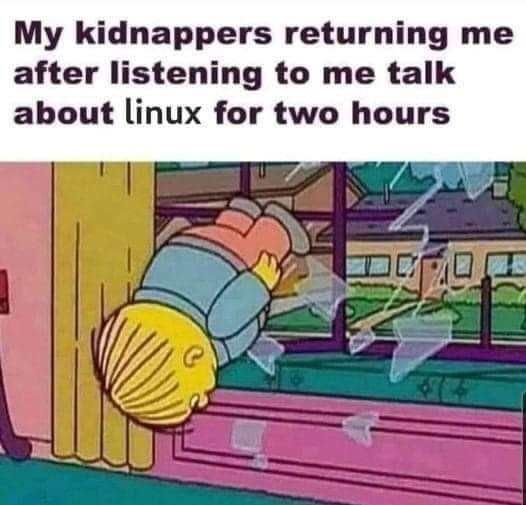About two months ago, while still running Ubuntu 18.10 on my Lenovo ThinkCentre-M58p, dual booted with Windows 10 (which I have not opened in over a year), my system completely froze. The keyboard and mouse were unresponsive. I had to hard reboot the PC which took several tries. At first the machine would not shut down or restart but would make a series of beeps, three quick beeps four times in a row, and then either the hard drive or fan would rev up and run loudly and not stop until I attempted a hard reboot again. This process would repeat several times until finally the PC would restart.
This happened three times in about five days. I could not find any specific information online regarding solutions for this sequence of events but I did come across a post that said upgrading to Ubuntu 20.04 solved their freeze problems. As I had been meaning to upgrade I went ahead and did this.
20.04 worked great for about a month and then it froze twice within a couple of days, exactly the same sequence as the 18.10 freezes. Prior to attempting the hard reboot after the second freeze I opened up the PC and gave it a good long overdue cleaning and dusting (which I had not done for a longer time then when I last opened Windows 10). I figured that couldn’t hurt things.
After the cleaning 20.04 finally rebooted and worked fine for three weeks. Then yesterday, this time, when I attempted to start it back up from suspend, the PC would not come out of suspend mode but started the beeps/revving hard drive again. This would not stop happening even after five or six attempts to hard reboot. I thought the machine is now truly dead but I went and opened and dusted it again, why not? And sure enough at my next attempt to reboot it started back up and ran fine.
One common factor through all this is that Chrome has always been running when Ubuntu freezes although it was not open when the PC failed to wake up from suspend mode the last time. Also, after the first freeze in 18.10 I started looking at the system monitor and the CPU’s will often run at or near 100% for brief periods of time, or a few times 10 or 20 seconds straight, especially when I’m using YouTube or Facebook. The memory has never gone much above 60%.
I have not been able to find online any information specific or even close to my situation, so any thoughts, ideas or solutions will be greatly appreciated. My tech skills are beginner/intermediate, especially in regards to Linux so let me know if there’s more information needed. This PC is a refurbished machine over eight years old so perhaps it’s time has come to an end but I would like to try all other possibilities before getting a new computer.
Below are the specifications and error reports from the terminal. (Thanks ‘It’s FOSS’ for how to access this info!)
steven@steven-ThinkCentre-M58p:~$ inxi -Fxz
System:
Kernel: 5.4.0-70-generic x86_64 bits: 64 compiler: gcc v: 9.3.0
Desktop: Gnome 3.36.7 Distro: Ubuntu 20.04.2 LTS (Focal Fossa)
Machine:
Type: Desktop System: LENOVO product: 7220RY8 v: ThinkCentre M58p
serial: <filter>
Mobo: LENOVO model: LENOVO serial: <filter> BIOS: LENOVO v: 5CKT77AUS
date: 05/07/2012
CPU:
Topology: Dual Core model: Intel Core2 Duo E8500 bits: 64 type: MCP
arch: Penryn rev: A L2 cache: 6144 KiB
flags: lm nx pae sse sse2 sse3 sse4_1 ssse3 vmx bogomips: 12636
Speed: 1995 MHz min/max: 2000/3167 MHz Core speeds (MHz): 1: 1995 2: 1995
Graphics:
Device-1: Intel 4 Series Integrated Graphics
vendor: Lenovo ThinkCentre M6258 driver: i915 v: kernel bus ID: 00:02.0
Display: x11 server: X.Org 1.20.9 driver: modesetting unloaded: fbdev,vesa
resolution: 1440x900~60Hz, 1440x900~75Hz
OpenGL: renderer: Mesa DRI Intel Q45/Q43 (ELK) v: 2.1 Mesa 20.2.6
direct render: Yes
Audio:
Device-1: Intel 82801JD/DO HD Audio vendor: Lenovo driver: snd_hda_intel
v: kernel bus ID: 00:1b.0
Sound Server: ALSA v: k5.4.0-70-generic
Network:
Device-1: Intel 82567LM-3 Gigabit Network vendor: Lenovo driver: e1000e
v: 3.2.6-k port: 1820 bus ID: 00:19.0
IF: enp0s25 state: up speed: 100 Mbps duplex: full mac: <filter>
Drives:
Local Storage: total: 1.82 TiB used: 29.97 GiB (1.6%)
ID-1: /dev/sda vendor: Western Digital model: WD2003FYPS-27W9B0
size: 1.82 TiB
Partition:
ID-1: / size: 908.96 GiB used: 29.97 GiB (3.3%) fs: ext4 dev: /dev/sda5
ID-2: swap-1 size: 7.47 GiB used: 0 KiB (0.0%) fs: swap dev: /dev/sda6
Sensors:
System Temperatures: cpu: 48.0 C mobo: N/A
Fan Speeds (RPM): N/A
Info:
Processes: 238 Uptime: 8h 48m Memory: 7.25 GiB used: 3.73 GiB (51.5%)
Init: systemd runlevel: 5 Compilers: gcc: 9.3.0 Shell: bash v: 5.0.17
inxi: 3.0.38
steven@steven-ThinkCentre-M58p:~$ dmesg --time-format iso -l err,crit,alert,emerg
2021-03-25T10:01:25,317630-04:00 ACPI BIOS Error (bug): Failure creating named object [\_SB.PCI0._OSC.CAPB], AE_ALREADY_EXISTS (20190816/dsfield-182)
2021-03-25T10:01:25,317637-04:00 ACPI Error: AE_ALREADY_EXISTS, CreateBufferField failure (20190816/dswload2-477)
2021-03-25T10:01:25,317664-04:00 ACPI Error: Aborting method \_SB.PCI0._OSC due to previous error (AE_ALREADY_EXISTS) (20190816/psparse-529)
2021-03-25T10:01:25,323655-04:00 platform INT0800:00: failed to claim resource 0: [mem 0xff800000-0xffffffff]
2021-03-25T10:01:25,323658-04:00 acpi INT0800:00: platform device creation failed: -16
2021-03-25T10:01:25,727517-04:00 ima: Error Communicating to TPM chip
2021-03-25T10:01:25,731689-04:00 ima: Error Communicating to TPM chip
2021-03-25T10:01:25,735859-04:00 ima: Error Communicating to TPM chip
2021-03-25T10:01:25,740029-04:00 ima: Error Communicating to TPM chip
2021-03-25T10:01:25,744192-04:00 ima: Error Communicating to TPM chip
2021-03-25T10:01:25,748180-04:00 ima: Error Communicating to TPM chip
2021-03-25T10:01:25,752180-04:00 ima: Error Communicating to TPM chip
2021-03-25T10:01:25,756182-04:00 ima: Error Communicating to TPM chip
steven@steven-ThinkCentre-M58p:~$

